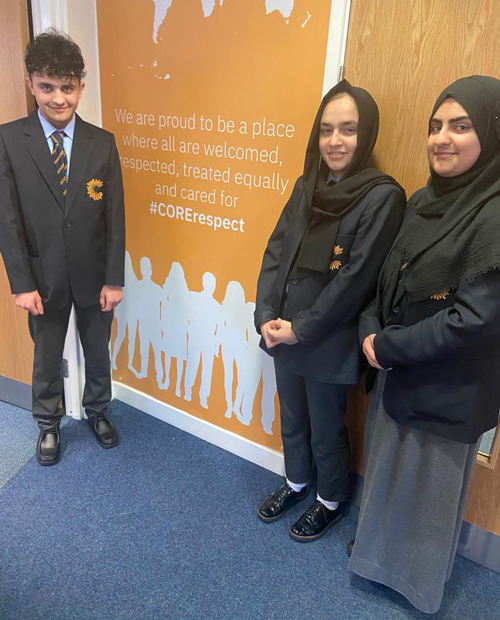Schools have opened their doors to thousands of children evacuated from Afghanistan, hiring language experts and counsellors and adapting their curriculums to meet their “moral obligation” to their new pupils.
Up to 15,000 people were evacuated from Kabul in August, about 10,000 of them Afghan nationals and about half of them children.
The government says all school-aged children who came during the airlift are now in school. More are still arriving, although it will not say exactly how many have been placed, under what has been dubbed ‘Operation Warm Welcome’.
The Department for Education has set aside up to 6,000 laptops and tablets for Afghan children settling in England.
Forty-seven councils were handed £12 million to provide education for refugee children – £6,580 for each primary-age pupil and £8,755 for each secondary. The money is for extra staff, as well as transport, uniforms and free school meals.
In Liverpool, more than 90 pupils have joined four schools. The Academy of St Nicholas, near one of the hotels for refugees, has taken 41.
Headteacher Jeniffer Sing said as soon as the school found out about the children needing places “the whole community just wanted to help”.
Staff spent time at the hotel getting to know pupils and to understand their level of education and English and the “trauma” they had suffered.
That trauma is significant, with many pupils still fearing for the safety of relatives left in Afghanistan.
Pupils speak of the ‘day everything changed’
Siobhan Riley, the school’s director of SEN, said one pupil who prepared a video for a school assembly described “the day everything changed. He heard gunshots and got home to find his parents packing suitcases. Within 20 minutes, they’d left.”
The school has an adapted curriculum for the new pupils. It will soon recruit an English as an additional language (EAL) coordinator to monitor progress, and a counsellor to help with wellbeing.

Some year 11-age pupils have started in year 10 to give them more time to study. However, two pupils who studied at an international school in Kabul will sit GCSEs this year in “five or six” subjects.
Garston Primary School in Liverpool has taken on 13 pupils.
Head Sarah Knipe said there was never “any question” of her school’s involvement.
“If we had known that these children were housed here sooner, we would have probably battered down the doors of the local authority to try to get them in.”
The school has also had to tailor its support. Some children are “more accomplished” in English, while others have been separated from their families and need extra support.
Two schools run by the CORE Education Trust in Birmingham have also admitted new pupils, although not through the official resettlement scheme.
Said Anwar joined Jewellery Quarter Academy in year 10 last week after travelling without his parents through Europe, living for a time in the “jungle” camp near Calais.
‘We put ourselves forward as a place of sanctuary’
Headteacher Jamie Barton said the school felt it had a “moral obligation” to take extra pupils, and had “put ourselves forward as a place of sanctuary, a place where students will find a home and a place where they will find compassion.”
Other Afghan pupils who arrived at the school during previous years “buddied up and supported” their new schoolmate, translating for him in his first meeting with Barton.
Brothers Salman and Noman joined City Academy about six months ago. They live some distance away, but headteacher Rekha Shell-Macleod said there was “no local school willing to offer them a place”.

All three students are supported by a unit called CORE Hello, which provides “wraparound care” to pupils from all four trust schools who are struggling with language acquisition.
Shell-Macleod said older pupils would access the “same number” of GCSEs as other pupils “which is really important for them”, but also follow a tailored curriculum with a bigger focus on language.
Ninestiles Academy, also in Birmingham, has enrolled five year 10 and 11 pupils from Afghanistan in the past six months.
Head Alex Hughes said teaching the new pupils “requires great flexibility”.
But “whilst logistical challenges undoubtedly exist”, the pupils are “beacons of dedication and hard work”.
















Your thoughts